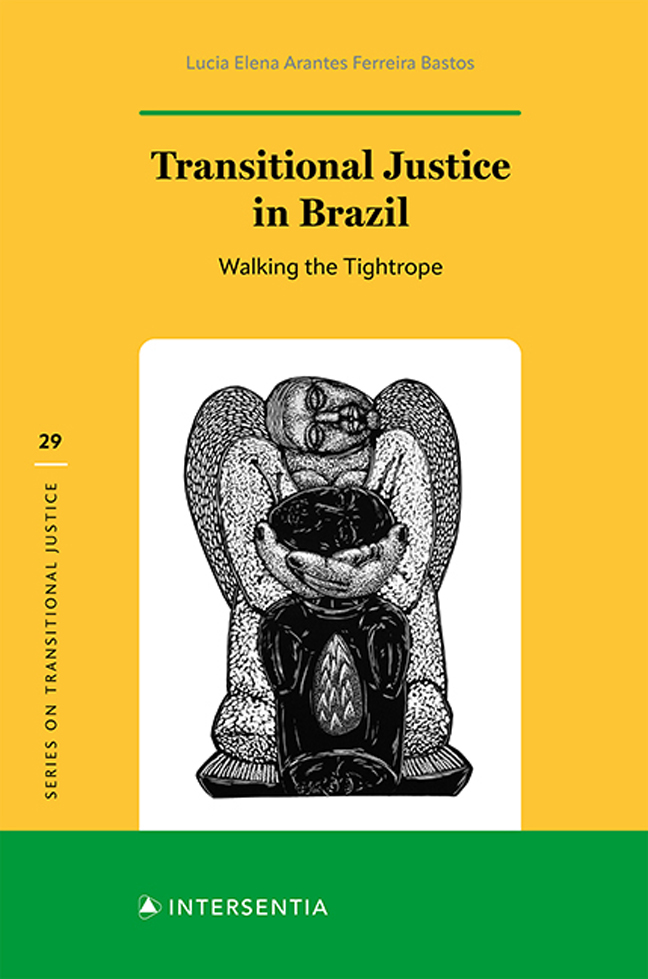Book contents
- Frontmatter
- Foreword
- Acknowledgments
- Contents
- List of Acronyms and Abbreviations
- 1 Introduction: Historical Perspectives from the Brazilian Dictatorship and Transitional Justice Measures
- Part I The Intersection Between Amnesty, the Rule of Law, and Authoritarian Legacies
- Part II Steps Towards Reparations, Accountability, and Truth
- Part III Complex Forms of Reparations, Accountability, and Truth-Seeking: Actors Beyond Agents of the State
- Bibliography
- Index
- About the Author
Foreword
Published online by Cambridge University Press: 29 February 2024
- Frontmatter
- Foreword
- Acknowledgments
- Contents
- List of Acronyms and Abbreviations
- 1 Introduction: Historical Perspectives from the Brazilian Dictatorship and Transitional Justice Measures
- Part I The Intersection Between Amnesty, the Rule of Law, and Authoritarian Legacies
- Part II Steps Towards Reparations, Accountability, and Truth
- Part III Complex Forms of Reparations, Accountability, and Truth-Seeking: Actors Beyond Agents of the State
- Bibliography
- Index
- About the Author
Summary
This book concerns a topic that is almost taboo in Brazilian political culture and the Brazilian political system: Transitional Justice. In the last 50 years, different societies whose citizens have lived under the dominion of authoritarian regimes and civil – military dictatorships have gone through specific processes as they transitioned to democratic regimes. In some of them, the transition resulted in the cessation of repressive policies directed at the opposition and contesting movements. In many cases, the transition was initiated by the ruling elite itself, in an attempt to maintain control of the transition process and to avoid being held directly responsible for the human rights violations that took place during the authoritarian regime. In such cases, the assurances of a transition to democracy were accompanied by commitments to forget the recent past, a kind of full-stop before beginning a new history and new agreements aimed at reconstructing existing institutions through reform or the passage of a new Constitution. Though at first those agreements seemed to represent an advance over the atrocities and violence committed against everyday citizens in the past – especially those with ties to opposition parties – subsequently dissatisfaction came to the fore and demands for justice, accountability, and criminal prosecution of the violators were more frequent.
In other societies, however, the scenarios were very different. The transition processes were accompanied by what is recognized as Transitional Justice. This is a series of political and institutional procedures capable of preventing serious human rights violations from being forgotten and of promoting a permanent policy of collective memory of past events – real policies which institute specific rules for the judgment of the crimes committed and for holding the perpetrators accountable, while simultaneously fostering mechanisms for reconciliation and reparations. Such procedures seek to keep group resentment from remaining just below the surface, capable of manifesting itself in a moment of political crisis and endangering the perpetuation of democratic life. Thus, there arises a minimum degree of consensus at the core of public opinion with respect to the fundamental values underlying the culture and protection of human rights. Among those points of consensus is the refusal to accept practices that were common during the dictatorship, such as torture, persecution, and the suppression of basic civil and public rights and liberties.
- Type
- Chapter
- Information
- Transitional Justice in BrazilWalking the Tightrope, pp. v - xPublisher: IntersentiaPrint publication year: 2023



